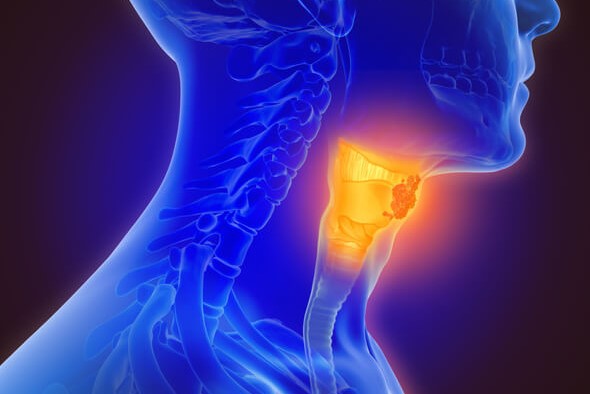
Thyroid nodule: what is it and what are the symptoms?
Let’s talk about a thyroid nodule: the thyroid is a small gland, but one that is extremely important to our bodies because of its cardiovascular and metabolic effects (particularly on cholesterol levels) and its effects on the nervous system, skin and bone
It should also be remembered that the thyroid plays a decisive role in the development of neurocognitive abilities during foetal development and in the early years of a child’s life.
The thyroid gland can be subject to various pathologies that can lead to an increase in the size of the gland and/or its malfunction.
In particular, goiter and thyroid nodules are frequently encountered in Italy.
Thyroid diseases: risk factors and symptoms of thyroid nodules
Iodine plays an important role in thyroid pathology, especially in a country like Italy which is characterised by a moderate deficiency of this element.
Iodine is essential for the production of thyroid hormone and its deficiency is associated with the appearance of goitre and, in extreme cases, hypothyroidism.
In order to remedy this deficiency, the consumption of iodized salt is recommended.
Other risk factors for thyroid disease (goiter, but also autoimmune-based hypothyroidism and hyperthyroidism) are family history and being female.
Finally, it should be remembered that the incidence of thyroid disease increases with age.
The endocrine system is closely linked to the immune system.
Although it is not yet certain to what extent malfunctioning of the thyroid gland can affect the immune system, it is known that hyper- and hypothyroidism can frequently be caused by a condition of autoimmunity, i.e. the presence of autoantibodies that attack the gland as if it were a foreign body to the host organism.
Thyroid nodule: how is it diagnosed?
Epidemiological data indicate that many patients are affected by goitre, which is often found incidentally during examinations for disorders that are not clearly related to a thyroid pathology.
The presence of goiter and thyroid nodules does not give rise to specific symptoms, unless the size is such that it causes compression of the trachea or oesophagus, leading to swallowing or breathing disorders.
In 2-5% of cases the nodules have tumour characteristics.
It is therefore essential to perform an ultrasound scan, a simple and inexpensive examination that provides the specialist with all the information necessary for the management of thyroid nodules.
On the basis of the ultrasound findings, “suspicious” nodules are identified and an ultrasound-guided needle aspiration is prescribed to reliably exclude the presence of a thyroid neoplasm.
In the management of goiter and thyroid nodules, a conservative approach tends to be adopted, but in the presence of multinodular goiter with compressive effects, untreatable or drug-resistant hyperthyroidism, or neoplasia, total thyroidectomy is the treatment of choice.
In selected cases, more conservative treatments can be considered, such as alcoholisation of cystic formations or thermoablation procedures (with radiofrequency or laser) in the presence of cytologically benign solid nodules.
A thyroidectomy requires a stay of 2-3 days and recovery time is short, with a return to daily life in about 10 days.
Read Also:
Emergency Live Even More…Live: Download The New Free App Of Your Newspaper For IOS And Android
Thyroid Nodule: Signs Not To Be Underestimated
Thyroid: 6 Things To Know To Get To Know It Better
Thyroid Nodules: What They Are And When To Remove Them
Thyroid, The Symptoms Of A Malfunctioning Thyroid Gland


